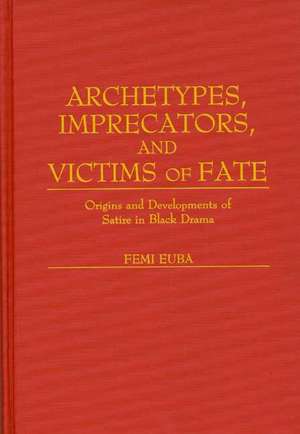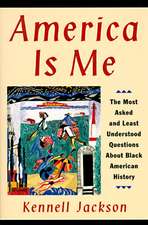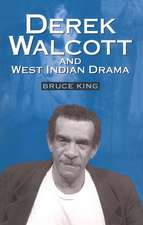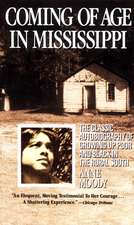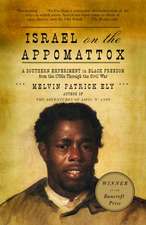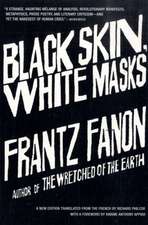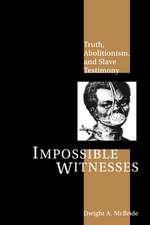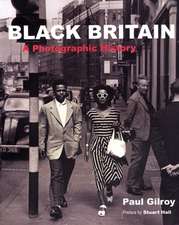Archetypes, Imprecators, and Victims of Fate: Origins and Developments of Satire in Black Drama: Contributions in American History, cartea 126
Autor Femi Eubaen Limba Engleză Hardback – 30 noi 1989
In searching for a definitive concept of black theatre, Euba delves deeply into the Yoruba culture and gods, specifically the attributes and ritual of Esu-Elegbara. The resulting vision goes beyond the standard interpretations to place Esu, the fate god, squarely at the center of Yoruba ritual and drama, and by extension, at the center of the black writer's concept of character, actor, and audience as victims of fate and satire.
The first section of the book explores the essence of man in the black world of survival. The second, and main section, seeks to develop a concept of drama in black theatre (in African and the New World experience) from the point of view of Esu-Elegbara. The text is highlighted by various illustrations. Three tables outline the Agents of Satire: Imprecator; Imprecator/Satirist; and Satirist/Agent. A bibliography, notes, and an index will help the scholar who wishes to further explore this rich and complex subject. The book is a sophisticated study that will be of great interest to students seeking to understand African influences on black culture today. Potential markets for the book include university-level black history, literature, or culture studies. A broader market might be found among theatre practitioners and students of modern drama.
Din seria Contributions in American History
- 26%
 Preț: 357.50 lei
Preț: 357.50 lei - 23%
 Preț: 375.81 lei
Preț: 375.81 lei - 42%
 Preț: 371.12 lei
Preț: 371.12 lei - 18%
 Preț: 355.34 lei
Preț: 355.34 lei - 38%
 Preț: 436.32 lei
Preț: 436.32 lei - 38%
 Preț: 345.74 lei
Preț: 345.74 lei - 38%
 Preț: 438.93 lei
Preț: 438.93 lei - 38%
 Preț: 439.77 lei
Preț: 439.77 lei - 39%
 Preț: 207.36 lei
Preț: 207.36 lei - 14%
 Preț: 354.40 lei
Preț: 354.40 lei - 33%
 Preț: 320.87 lei
Preț: 320.87 lei - 38%
 Preț: 439.01 lei
Preț: 439.01 lei - 35%
 Preț: 462.70 lei
Preț: 462.70 lei - 23%
 Preț: 471.90 lei
Preț: 471.90 lei - 38%
 Preț: 344.31 lei
Preț: 344.31 lei - 38%
 Preț: 344.05 lei
Preț: 344.05 lei - 27%
 Preț: 439.09 lei
Preț: 439.09 lei - 33%
 Preț: 321.44 lei
Preț: 321.44 lei - 26%
 Preț: 449.05 lei
Preț: 449.05 lei - 26%
 Preț: 355.15 lei
Preț: 355.15 lei - 38%
 Preț: 439.17 lei
Preț: 439.17 lei - 27%
 Preț: 370.05 lei
Preț: 370.05 lei - 33%
 Preț: 320.79 lei
Preț: 320.79 lei - 22%
 Preț: 321.73 lei
Preț: 321.73 lei - 38%
 Preț: 437.84 lei
Preț: 437.84 lei - 27%
 Preț: 439.44 lei
Preț: 439.44 lei - 24%
 Preț: 463.55 lei
Preț: 463.55 lei - 27%
 Preț: 439.60 lei
Preț: 439.60 lei - 33%
 Preț: 320.01 lei
Preț: 320.01 lei - 27%
 Preț: 344.63 lei
Preț: 344.63 lei - 38%
 Preț: 436.04 lei
Preț: 436.04 lei - 38%
 Preț: 439.77 lei
Preț: 439.77 lei - 38%
 Preț: 436.99 lei
Preț: 436.99 lei - 33%
 Preț: 321.17 lei
Preț: 321.17 lei - 38%
 Preț: 439.17 lei
Preț: 439.17 lei - 38%
 Preț: 439.34 lei
Preț: 439.34 lei - 24%
 Preț: 469.71 lei
Preț: 469.71 lei - 26%
 Preț: 355.43 lei
Preț: 355.43 lei - 51%
 Preț: 252.86 lei
Preț: 252.86 lei - 38%
 Preț: 344.05 lei
Preț: 344.05 lei - 19%
 Preț: 493.02 lei
Preț: 493.02 lei - 38%
 Preț: 437.24 lei
Preț: 437.24 lei - 33%
 Preț: 321.93 lei
Preț: 321.93 lei - 27%
 Preț: 438.41 lei
Preț: 438.41 lei - 18%
 Preț: 353.91 lei
Preț: 353.91 lei - 33%
 Preț: 320.22 lei
Preț: 320.22 lei - 38%
 Preț: 346.74 lei
Preț: 346.74 lei - 40%
 Preț: 510.34 lei
Preț: 510.34 lei - 38%
 Preț: 346.07 lei
Preț: 346.07 lei
Preț: 437.07 lei
Preț vechi: 707.35 lei
-38% Nou
83.64€ • 90.82$ • 70.26£
Carte tipărită la comandă
Livrare economică 22 aprilie-06 mai
Specificații
ISBN-10: 0313255571
Pagini: 216
Dimensiuni: 156 x 234 x 14 mm
Greutate: 0.48 kg
Ediția:New.
Editura: Praeger
Seria Contributions in American History
Descriere
The first section of the book explores the essence of man in the black world of survival. The second, and main section, seeks to develop a concept of drama in black theatre (in African and the New World experience) from the point of view of Esu-Elegbara. The text is highlighted by various illustrations. Three tables outline the Agents of Satire: Imprecator; Imprecator/Satirist; and Satirist/Agent. A bibliography, notes, and an index will help the scholar who wishes to further explore this rich and complex subject. The book is a sophisticated study that will be of great interest to students seeking to understand African influences on black culture today. Potential markets for the book include university-level black history, literature, or culture studies. A broader market might be found among theatre practitioners and students of modern drama.
